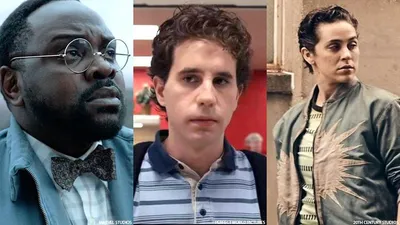Representation in Film: Empowering Diversity and Inclusion
- By -Lepage Kathy
- Posted on
- Posted in Uncategorized
Representation in film plays a pivotal role in shaping cultural narratives, challenging stereotypes, and promoting inclusivity across diverse identities, including race, gender, and LGBTQ+ issues. As filmmakers strive to authentically portray underrepresented communities, their narratives contribute to societal dialogue, empathy, and advocacy for greater visibility and social justice.

Race and Ethnicity: Redefining Cultural Narratives
Representation of race and ethnicity in film contributes to:
- Cultural Authenticity: Filmmakers depict diverse racial and ethnic identities with nuance, complexity, and authenticity, challenging stereotypes and celebrating cultural heritage through storytelling that resonates with global audiences.
- Social Commentary: Films explore systemic racism, identity politics, and historical injustices faced by marginalized communities, fostering empathy, understanding, and dialogue on issues of racial equality and social justice in contemporary society.
- Cultural Exchange: International cinema promotes cross-cultural understanding, solidarity, and global perspectives by showcasing diverse narratives, traditions, and lived experiences that transcend borders and promote cultural diplomacy.
Gender Identity and Empowerment: Breaking Stereotypes
Representation of gender identity in film addresses:
- Gender Equality: Filmmakers advocate for gender parity, representation, and empowerment by depicting diverse gender identities, roles, and experiences that challenge traditional gender norms and promote gender equality in storytelling.
- Intersectional Feminism: Films explore intersectionality, addressing how gender intersects with race, class, and sexuality to shape identity, privilege, and social disparities, advocating for inclusive narratives that amplify marginalized voices and perspectives.
- Empowerment Narratives: Cinema celebrates female protagonists, LGBTQ+ characters, and gender non-conforming individuals who defy stereotypes, overcome adversity, and inspire social change, promoting empowerment, visibility, and representation in mainstream media.
LGBTQ+ Representation: Visibility and Advocacy
Representation of LGBTQ+ issues in film promotes:
- Visibility and Acceptance: Filmmakers depict LGBTQ+ characters, relationships, and identities with authenticity, compassion, and dignity, fostering visibility, acceptance, and cultural representation that resonate with LGBTQ+ communities and allies.
- Narrative Diversity: LGBTQ+ cinema explores diverse narratives, genres, and storytelling approaches that celebrate love, resilience, and personal authenticity, challenging homophobia, transphobia, and discriminatory stereotypes through inclusive storytelling.
- Social Advocacy: Films advocate for LGBTQ+ rights, social justice, and legislative equality by raising awareness, promoting empathy, and mobilizing audiences to support LGBTQ+ rights movements, advocacy campaigns, and community initiatives.
Impact on Cultural Diversity and Social Change
Representation in film influences cultural diversity and social change by:
- Cultural Empowerment: Represented communities see themselves reflected on screen, validating their identities, experiences, and contributions to cultural heritage, fostering pride, solidarity, and collective empowerment.
- Educational Impact: Films educate audiences on social issues, historical contexts, and lived experiences of marginalized communities, promoting empathy, allyship, and social responsibility in combating prejudice, discrimination, and systemic inequalities.
- Media Influence: Cinema influences public perceptions, policy debates, and societal attitudes toward diversity, inclusion, and equity, shaping collective consciousness, media representation standards, and industry practices that prioritize authentic representation and cultural sensitivity.
Conclusion
Representation in film empowers diversity, challenges stereotypes, and promotes inclusivity across race, gender, and LGBTQ+ identities, fostering cultural understanding, societal empathy, and advocacy for social justice in the global film industry. As filmmakers continue to amplify marginalized voices, celebrate cultural heritage, and advocate for inclusive storytelling, cinema remains a powerful medium for promoting diversity, advancing social change, and shaping a more equitable and inclusive world through the transformative power of storytelling and cinematic representation.



